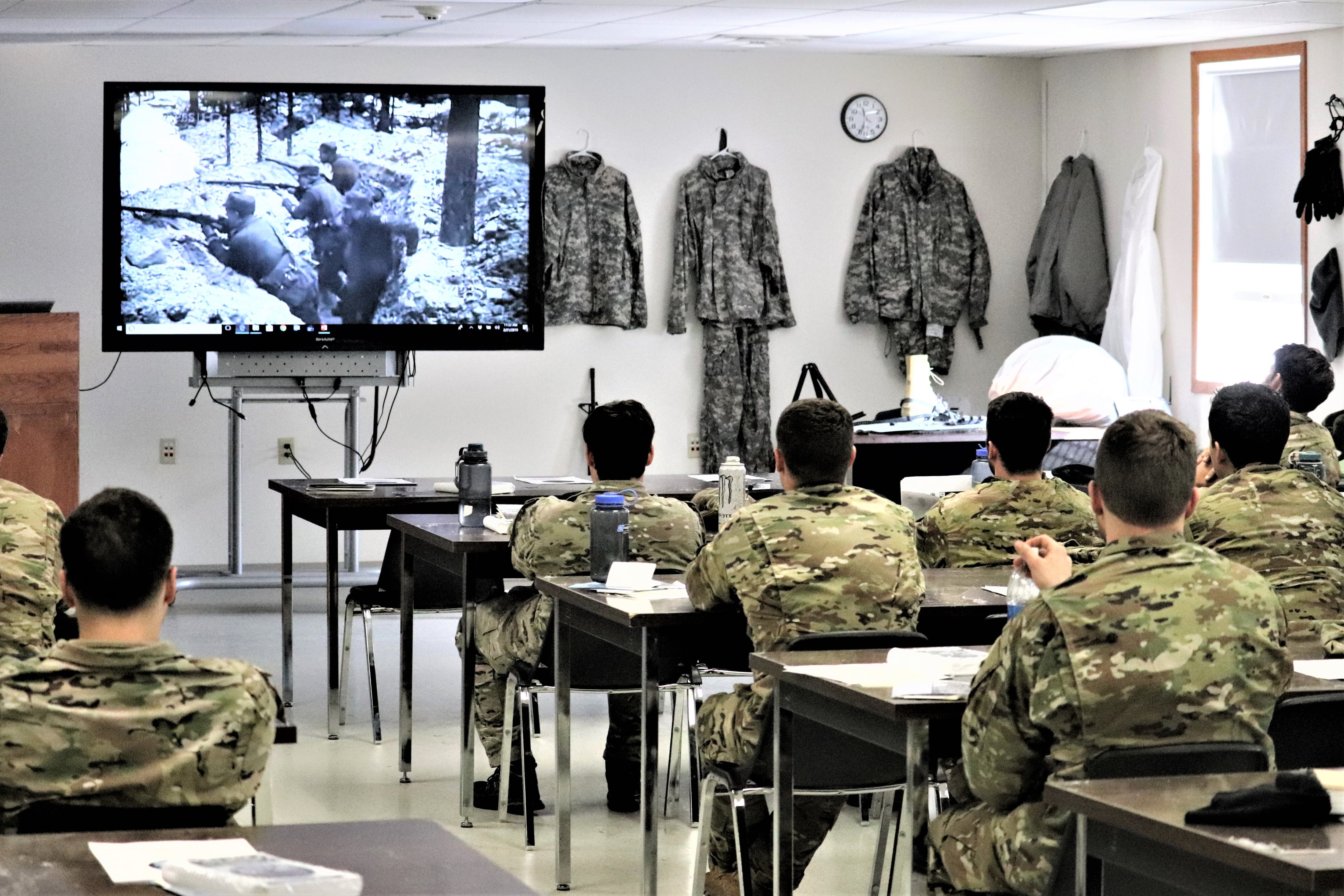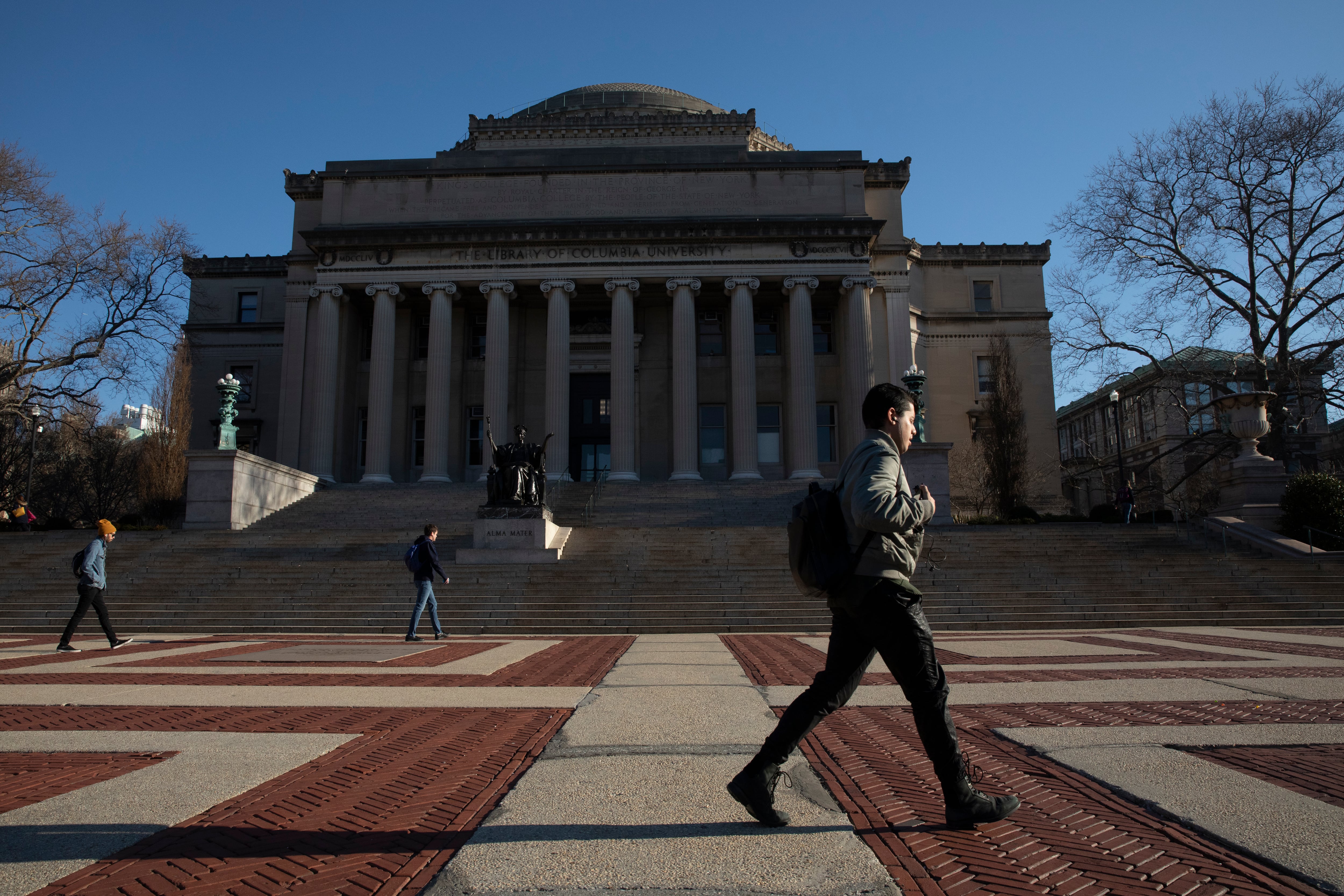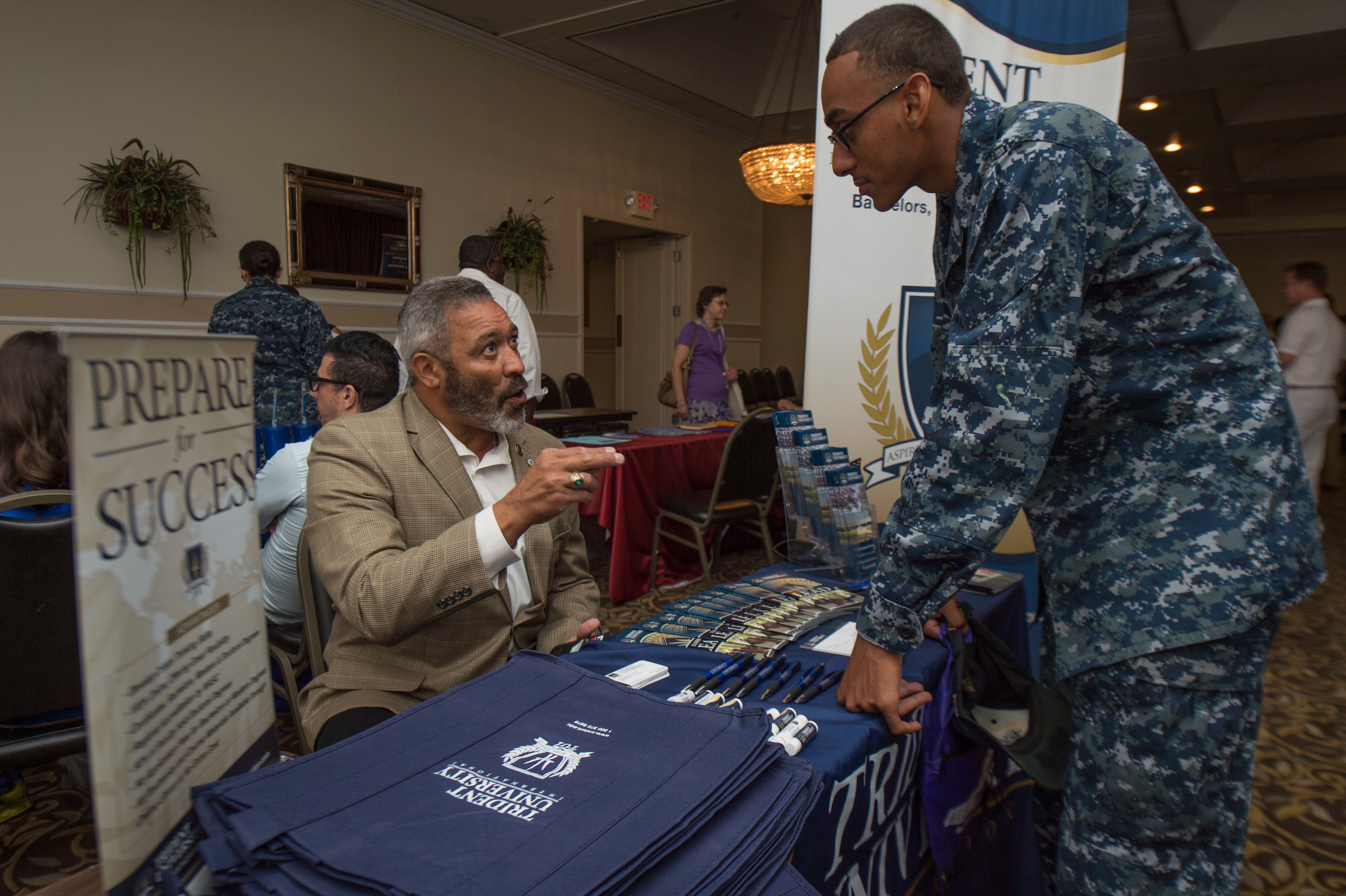White House officials are considering extending the military’s GI Bill benefits to front-line civilian health care workers responding to the coronavirus outbreak, according to a conservative radio host with ties to the administration.
In an op-ed in the Washington Post Wednesday evening, political analyst Hugh Hewitt said extending veterans education benefits to hospital staffers and other medical personnel facing extreme working conditions is “on the president’s mind.” He predicted the move would be widely popular.
“There are tens of thousands of Americans at work in the virus ‘hot zones’ who are risking themselves and their families every day for the common good,” Hewitt wrote. “We should clap them to and from work when we can, but we should also create for them a concrete set of economic thank-yous for those seeing us through the crisis.”
RELATED

The GI Bill has been a key military recruitment program for the last seven decades, especially since the program was massively overhauled in 2009 to provide more generous benefits to veterans.
Under current Post-9/11 GI Bill rules, troops who serve at least three years on active-duty can receive 36 months of tuition payouts equal to the most expensive state-run university in their home states, plus a monthly living allowance and a book stipend for each semester.
The total value of the package can run well above $100,000, depending on where veterans attend school. Individuals who serve at least 90 days on active duty can receive a portion of that payout.
In addition, troops who agree to serve at least 10 years in the military can transfer those education payouts to a spouse or dependents. Defense Department officials have fought easing of those transfer rules in the past, arguing that the tuition payouts should be closely protected as a military recruiting and retention tool.
Nearly one million individuals received some type of education benefits from the VA this school year. The Congressional Budget Office said from 2010 to 2016, the Post-9/11 GI Bill program cost VA more than $65 billion.
RELATED

Hewitt wrote that expanding the program to non-veterans “would require careful drafting to make sure that a grant of GI Bill benefits to civilians was not too lightly conferred.” He did not provide any potential cost estimates for the plan.
But he argued that several prominent veterans have said that “their lives at the front lines were much, much easier than those of the warriors” battling coronavirus today.
“There’s little doubt that the vast majority of Americans would support this expansion of the GI Bill,” he said. “The famous post-World War II measure has evolved over time and should evolve again. Right now.”
Leo covers Congress, Veterans Affairs and the White House for Military Times. He has covered Washington, D.C. since 2004, focusing on military personnel and veterans policies. His work has earned numerous honors, including a 2009 Polk award, a 2010 National Headliner Award, the IAVA Leadership in Journalism award and the VFW News Media award.





